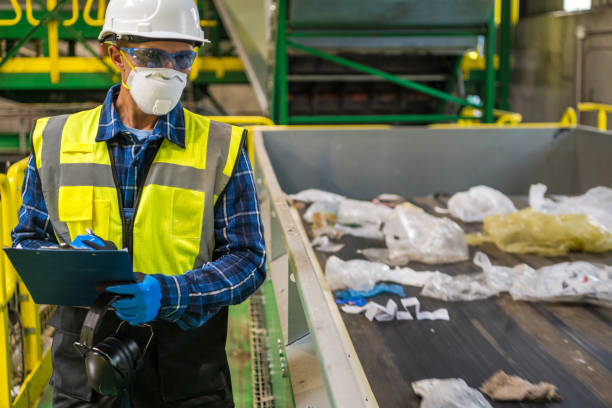As urban areas expand and evolve into smart cities, the challenge of managing toxic and hazardous waste grows significantly. Despite their technological advancements, smart cities must address one fundamental environmental issue—safe and efficient hazardous waste collection and disposal. Without it, sustainability goals fall flat. In this beginner’s guide, we will explore how hazardous waste collection and disposal services are playing a crucial role in shaping cleaner, safer, and more responsible urban environments.
Understanding Hazardous Waste: What Is It and Why Does It Matter?
Subtitle: Defining the Problem Behind the Pollution
Hazardous waste refers to any material that poses a significant threat to public health or the environment due to its chemical, biological, or radiological properties. This includes industrial byproducts, medical waste, batteries, electronics, and even certain household items like cleaning agents and paint.
If not managed properly, hazardous waste can contaminate soil, water bodies, and the air, leading to severe health consequences and long-term ecological damage. As a result, hazardous waste collection and disposal services have become indispensable for modern urban living.
The Role of Smart Cities in Waste Management
Subtitle: Merging Technology with Environmental Responsibility
Smart cities rely on digital technology and data analytics to optimize infrastructure, resources, and services. This includes waste management systems designed to detect, segregate, and handle different types of waste intelligently.
By integrating IoT devices, real-time monitoring, and automated collection systems, smart cities are revolutionizing how hazardous waste is identified and removed. These systems help prevent illegal dumping, reduce collection inefficiencies, and ensure compliance with environmental regulations.
Moreover, digital tracking ensures accountability at every stage—from collection to transportation and final disposal—making hazardous waste management more transparent and reliable.
How Hazardous Waste Collection Services Work
From Identification to Safe Disposal
Professional hazardous waste manegement follow a well-defined and regulated process:
Waste Identification and Classification
Waste is categorized based on its physical, chemical, and biological properties. Accurate labeling ensures the right treatment methods are applied.
Packaging and Storage
Hazardous waste must be securely packaged in leak-proof containers to prevent spillage and contamination during transit.
Transportation
Specialized vehicles and trained personnel are used to transport the waste safely to designated treatment or disposal facilities.
Treatment and Disposal
Depending on the nature of the waste, it is either incinerated, chemically treated, or contained in secure landfills designed to prevent environmental damage.
Documentation and Reporting
Every step is documented and reported for regulatory compliance and environmental accountability.
This rigorous process reduces risks and enhances the efficiency of managing dangerous waste materials.
The Environmental and Public Health Impact
The Unseen Benefits of Responsible Waste Handling
Hazardous waste, if left unchecked, can seep into water supplies, cause soil degradation, and contribute to air pollution. Long-term exposure can result in respiratory illnesses, skin disorders, cancer, and neurological issues.
However, the impact of proper hazardous waste collection and disposal services is immense:
Cleaner ecosystems due to reduced pollution levels.
Improved public health through minimized exposure to toxic materials.
Sustainable development by ensuring cities grow without compromising environmental integrity.
Enhanced waste recovery as certain materials like metals and chemicals can be safely recycled or repurposed.
In essence, effective waste services are not just a regulatory requirement—they are an investment in a healthier future.
Government Regulations and Industry Compliance
Subtitle: Why Following the Rules Matters
Governments worldwide have set stringent regulations governing hazardous waste management. These laws dictate everything from waste classification to disposal techniques, ensuring environmental safety and public health.
Smart cities and industrial players must align with these rules to avoid penalties and reputational damage. Hiring certified hazardous waste collection and disposal service providers ensures full compliance, as these firms stay updated with evolving standards and best practices.
Additionally, government-backed initiatives often support businesses in managing hazardous waste through subsidies, training programs, and digital platforms, making compliance both easier and more affordable.
Challenges and Future Outlook for Waste Management in Smart Cities
Subtitle: Overcoming Roadblocks to Embrace a Cleaner Tomorrow
While the benefits are clear, smart cities face several challenges in hazardous waste management:
High operational costs for specialized handling and treatment.
Lack of public awareness about proper waste segregation.
Limited infrastructure in some areas to handle increasing waste volumes.
E-waste boom from the rise in smart devices.
Looking ahead, innovations like AI-driven sorting systems, blockchain tracking for waste flows, and biodegradable alternatives to hazardous materials are expected to revolutionize the industry. Moreover, public-private partnerships will continue to fuel advancements in hazardous waste collection and disposal services, ensuring smart cities remain both tech-savvy and eco-conscious.
Call to Action: Choose Sustainable Waste Solutions Today
Synergy Tecno Venture Smart cities aren’t just about faster internet and intelligent traffic lights—they’re about building healthier, more sustainable communities. Choosing the right hazardous waste collection and disposal service is a step toward that goal.
Partner with certified professionals today to safeguard your environment, comply with regulations, and lead your city toward a cleaner, greener future.
Contact your local hazardous waste expert now and make the smart choice for your smart city.
Frequently Asked Questions (FAQs)
What qualifies as hazardous waste?
Hazardous waste includes items like industrial chemicals, electronic waste, medical waste, and toxic household materials like batteries and solvents.
Why is hazardous waste collection important?
Improper disposal can harm human health and the environment. Professional collection ensures safe handling and compliance with environmental laws.
How often should hazardous waste be collected? It depends on the type and volume of waste. Industrial facilities may require weekly pickups, while smaller businesses might schedule monthly collections.
Can hazardous waste be recycled?
Yes, certain types like solvents, oils, and metals can be safely treated and recycled, reducing environmental impact.
Are hazardous waste services expensive?
While there is a cost involved, it is a necessary investment. Some governments offer incentives to offset expenses for responsible disposal.
Explore more tips and guides—just follow the link below.
